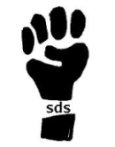What does "freedom" mean?
Notice, as we rocket into another tiresome political campaign season, that even more than usual, the crucial word freedom is fiercely massaged, corrupted, despoiled, and degraded by the parasitic ruling class of bureaucrats, politicos, subsidized businessmen, privileged labor leaders, militarists, state historians, power-worshiping "intellectuals," and their media lapdogs. Each tells us we can be made “free” only by slavish devotion to their particular self-serving agenda.
More than ever, we radical libertarians must recapture our language. We must keep clear what we mean by “freedom” and not surrender to statist, watered-down redefinitions.
This brief essay by El Ray first appeared in the May 1964 issue of Liberal Innovator. It was later republished in a collection of Rayo’s writings, Vonu: The Search for Personal Freedom, edited by Jon Fisher and published by Loompanics Unlimited in 1983.
Is “freedom” a useful concept? Can a social environment be meaningfully described in terms of “freedom”?
Spokesmen for the political-economic status quo assert that man is, in large measure, a “slave” of his environment and his personal limitations and thus is never really free. This implies that acts or threats of violence inflicted on one man by other men are no more oppressive than are the misfortunes and restrictions inflicted on man by his physical environment; that, for example, a state edict to pay taxes or be imprisoned is not fundamentally different from the biological need to obtain food or starve.
If this view were correct, then freedom would be a sociological myth and all arguments for freedom would be empty phrases. A meaningful concept of freedom can not include immunity from natural phenomena. A man is obviously never “free” from the principles of gravity nor “free” from the necessity of sustaining his own life (so long as he chooses to live).
What is the significant difference between constraints imposed on a man by other human beings and the requirements of physical reality?
Man’s physical environment is mechanistic; it is not volitional. Man’s ability to function within his environment is limited only by his intelligence and knowledge and by intrinsic physical properties of the environment. Man may choose to increase his knowledge and devise ingenious ways to overcome apparent environmental constraints. And the environment continues to function in a potentially predictable manner, devoid of conscious intent. Man possesses and may use intelligence to alter his environment but his physical environment has no intelligent purpose to oppose man.
In contrast, constraints imposed on a man by other men can be the result of conscious, calculated, volitional intent. Purposeful attempts by a victim of force to regain his freedom can be opposed and negated by the purposeful counteractions of the coercers. Men bent on the forceful imposition of their demands can be a vastly more serious threat, a vastly more severe restriction on human action than are the non-reasoning forces of nature.
For this reason “freedom,” defined as the absence of physical force initiated by intelligent beings, is a meaningful concept. “Freedom” is a vital component of human effectiveness and fulfillment.
Labels: el ray, freedom, leftlibertarian, politics, self-liberation













0 Comments:
Post a Comment
<< Home